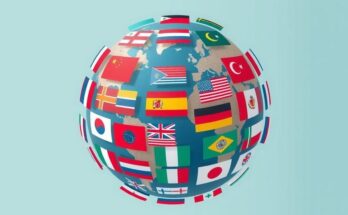Uganda’s military support in South Sudan has raised concerns regarding sovereignty and governance. The involvement of Ugandan troops is perceived by many South Sudanese as aiding a corrupt regime, deepening local tensions. Rather than acting as peacekeepers, Uganda’s actions have led to accusations of war crimes and diminished the credibility of its military. To foster true self-determination, South Sudan must reject foreign influences and invest in its own military capabilities, while Uganda must reassess its role to avoid becoming an aggressor.
The complexities surrounding Uganda’s involvement in South Sudan have raised crucial governance and transparency concerns. The recent ambiguous statements regarding troop deployments highlight these issues and could potentially escalate regional conflicts while undermining trust. This marks Uganda’s second significant military engagement in South Sudan within a decade, revealing President Yoweri Museveni’s propensity to support President Salva Kiir’s regime, which is often viewed as corrupt and detrimental to peace.
South Sudan’s reliance on Ugandan military support raises serious questions about the nation’s sovereignty and military capacity. Dependence on external forces to manage domestic conflicts projects a weakened national army and may embolden neighboring countries to intervene in South Sudan’s affairs, undermining its territorial integrity. This situation ultimately invites exploitation and harassment, further complicating South Sudan’s internal power dynamics.
Historically, many South Sudanese appreciate Uganda’s support during their liberation struggles, but subsequent military actions since 2013 have tested this relationship. Allegations of war crimes and human rights violations committed by Ugandan troops have contributed to a deterioration of public sentiment toward Uganda, as many citizens now perceive its government to be siding with the oppressive regime in South Sudan.
There is an identifiable pattern in Uganda’s military engagements. President Kiir reportedly pays for Ugandan troops to suppress First Vice President Riek Machar’s forces during periods of escalating tensions. This behavior positions Uganda as a participant in the conflict rather than a neutral mediator, risking further destabilization in the region and compromising Uganda’s credibility as a stabilizing force.
The Uganda People’s Defence Forces (UPDF) once enjoyed a respected status in international peacekeeping efforts. However, these troubling deployments risk transforming UPDF into a mercenary force, undermining its image and jeopardizing vital international support. Such developments threaten to weaken UPDF at a time of significant regional turbulence.
It is imperative for international organizations like the United Nations, African Union, and IGAD to recognize Uganda’s involvement as a negative factor in South Sudan’s internal struggles. They should advocate for Uganda’s withdrawal and encourage the focus on genuine peacebuilding initiatives. South Sudanese citizens, having endured years of conflict, must assert their sovereignty and reject foreign interventions that exacerbate their vulnerabilities.
South Sudan cannot substitute its military forces with foreign troops. Instead of funneling resources into foreign military involvement, funds should be invested in the salaries of its unified forces to foster genuine self-determination and governance. Most Ugandans wish to maintain cordial relations with South Sudan, and South Sudanese seek to uphold their commitment to neighborly values. Therefore, it is crucial for the Ugandan government to reassess its military policies to avoid becoming an aggressor in a conflict that undermines both nations’ interests.
Uganda’s involvement in South Sudan presents significant challenges to governance, sovereignty, and regional stability. The ambiguous nature of military support raises questions about Uganda’s role in exacerbating internal conflicts and undermines its past reputation as a peacekeeping force. Genuine liberation and stability must stem from within South Sudan, free from external interference. A reevaluation of Uganda’s military policies will be essential to restore trust and maintain the longstanding bond between the two nations, with both governments being urged to prioritize peace and self-determination.
Original Source: www.independent.co.ug




